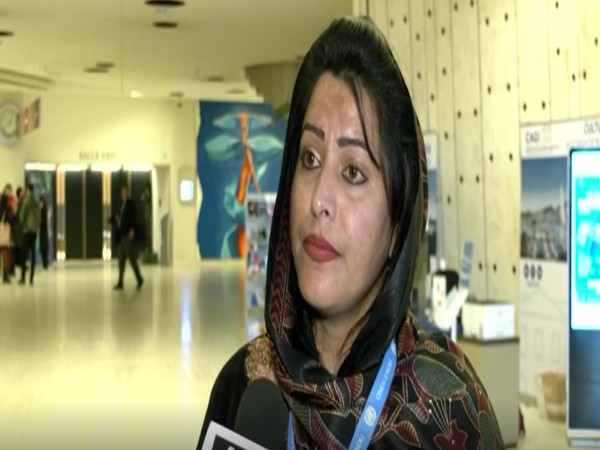
Geneva : Two Kashmiri women from Indian administered Jammu and Kashmir, who are taking part in the 52nd Session of the UN Human Rights Council in Geneva, have praised Prime Minister Narendra Modi and Union Home Minister Amit Shah for rapid development in the Kashmir valley after the abrogation of Article 370 and Article 35 (A) from Jammu and Kashmir.
In an exclusive interview with ANI, Tasleema Akhtar said, "I am thankful and grateful to PM Modi and Home Minister Amit Shah, who in the past 2-3 years, have brought about development in Kashmir after the abrogation of article 370. Earlier, there were no such developments. And I think because of them unemployment will also be removed. I salute Indian government ideologues and the government for giving them the opportunity to speak up for voiceless people."
On being asked about Pakistan's narrative on Kashmir in the UN, Akhtar commented that Pakistan need funds and for that, they keep on putting false propaganda in front of the other nations regarding Kashmir. She also said that she is from Kashmir and knew the condition on a grassroots level.
"Pakistan is the one who is disturbing the peace in Kashmir," Akhtar said.
Tasleema works for women's empowerment and rehabilitation of terror victims, whereas Bushra Majajabeen is a terror attack survivor.
Meanwhile, another Kashmiri woman, Bushra Mahajabeen, in an interview with ANI recalled her incident when she lost one hand due to the terror attack.
In an exclusive interview with ANI, Mahajabeen said, "I have already said about myself and I also shared my story of 2003, when I was very small. That year, some terrorists suddenly entered our house and targeted my sister. I held one of the terrorist's rifles in order to save my sister, but there was another member of that terror group who was sitting right behind me, just shot me and I lost my one hand. And it is very difficult to work with one hand. My family has also suffered a lot."
In the 52nd Session of the UN Human Rights Council in Geneva, the activist from J-K said, "More families are expected to come forward, sharing their experiences as stability and prosperity return to Kashmir."
Further sharing details of the situation returning to normal in the Union Territory, the activist said, "As violence in Kashmir is on the decline and life returns to normal, there is a visible change in the attitude of the common Kashmiris."
Also sharing the "tough times" her family had experienced before things changed for the better in the UT, she said, "For the first time, numerous Kashmiri families have shared their inability to speak about atrocities committed by terrorist organisations. In 2003, my sister was brutally killed by militants and I was shot multiple times. Life has never been normal since that day," said the activist.
She added, "Today, we are willing to speak up and soon. We spend decades in anonymity. Out of fear of retribution by militants and existing patriarchal structures all these years, the information vacuum was exploited by giving false impressions on the developments in Kashmir."